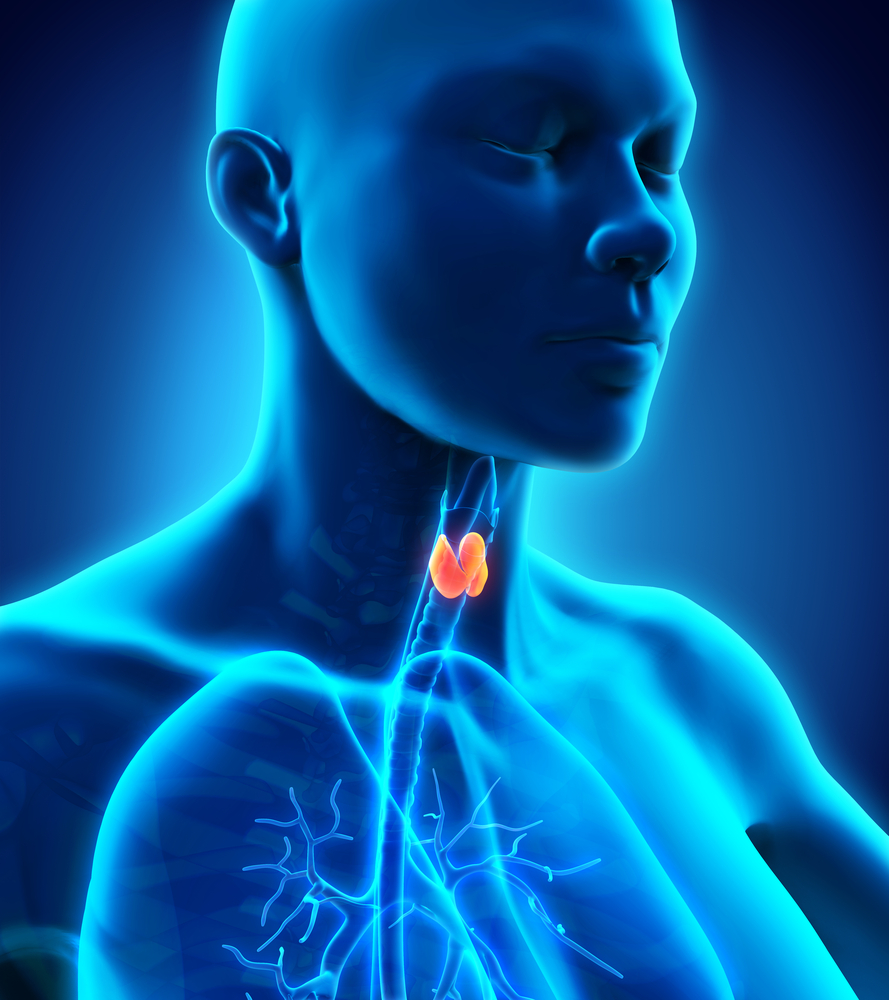CF Patients No Longer at High Risk for Thyroid Dysfunction, Study Finds
Written by |

Goiter and hypothyroidism — conditions linked to thyroid gland problems — are no longer major concerns for patients with cystic fibrosis (CF), according to recent research showing that only a fraction of patients now have severe thyroid dysfunction, possibly mirroring lesser use of iodine-based drugs.
The study, “Thyroid Function in Patients with Cystic Fibrosis: No Longer a Concern?”, published in the journal Thyroid, examined the thyroid status of 89 CF patients, along with lung function and medication use.
Both a lack of iodine and excessive levels of the trace element can cause the thyroid to malfunction. Many patients with CF experience iodine deficiency, but thyroid dysfunction caused by overly high iodine levels has also been reported, often brought about by the use of mucus-dissolving drugs based on iodine, such as expectorants like potassium iodine.
Since doctors no longer prescribe such drugs on a routine basis, researchers at Boston University Medical Center explored if this change in prescription habits impacted the presence of thyroid problems among CF patients.
The cohort analyzed was composed of mainly white patients, 54 percent men. These people were either outpatients at a specialist CF clinic or were hospitalized. Almost all had received pancreatic enzyme replacements, and 68 percent had undergone treatment with antibiotics within six months before the study’s start.
Of the 87 participants in whom measurements of thyroid stimulating hormone (TSH) were possible, only 8 percent had abnormal levels — and only one had apparent hypothyroidism, a condition caused by too little thyroid hormone being produced. Four other patients had increased TSH levels without symptoms, and two had hyperthyroidism — too much thyroid hormone — but no symptoms.
Researchers also measured the levels of thyroxine, the main hormone produced by the thyroid gland, finding that 34 percent of the patients had levels slightly considered too low.
Such distinctions as age, sex, ethnicity, body mass index (BMI), lung function, hospitalization, and pancreatic enzyme or recent antibiotic use could not be linked to the levels of TSH or thyroxine, or to the risk of thyroid dysfunction.
In all, 27 percent of the patients had test results indicating abnormal gland function, with only one patient showing symptoms caused by the dysfunction.
Researchers concluded that, overall, thyroid dysfunction was rare in the cohort of CF patients analyzed, and there were no significant predictors of thyroid dysfunction.






